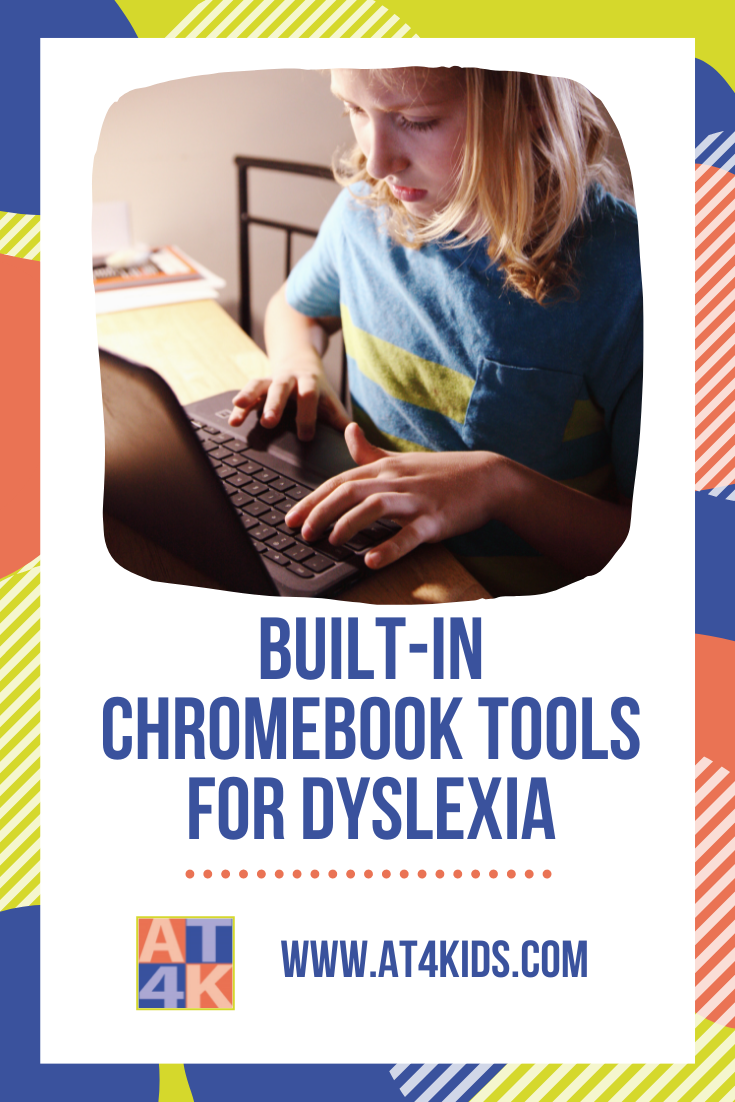
AT4Kids Blog
Looking for Something?
Search Category
- AAC
- AAC Assessment
- AAC At Home
- AAC Eligibility
- AAC Funding
- AAC Implementation
- AAC Selection
- AT On the Spot!
- AT Support
- AT and the IEP
- Accessibility Supports
- Annoucements
- Announcements
- Apps for Special Needs
- Assessment
- Assistive Technology
- Autism Supports
- Behavior
- Boardmaker Resources
- Bookshare
- COVID-19
- Chrome Tools
- Common Core State Stan...
- Communication & AAC Basic
- Communication devices
- Communication in the Classroom
- Computer Accessibility
- Consultation
- Core Vocabulary
- Digital Book Resources
- E-Learning Resources
- Educational Session Ma...
- Educational Sessions
- Eye Gaze Access
- Family Support Resources
- Google Tools
- Grant
- Homeschool
- Implementation Support
- LTVEC
- Learning Disabilities
- Literacy
- Literacy and Reading S...
- Low Vision Supports
- Math Supports
- Modeling
- Newsletter
- OT Student Fieldwork
- PARCC Testing
- Physical Disabilities
Search Tag
- AAC
- AAC Activities
- AAC And Inappropriate Behaviors
- AAC And Physical Disabilities
- AAC And Safeguarding
- AAC And Sexual Abuse
- AAC Apps
- AAC At Home
- AAC Awareness Month
- AAC Conversation
- AAC Data Checklist
- AAC Data Collection
- AAC Evaluation
- AAC Final Projects
- AAC For Stuttering
- AAC Implementation
- AAC Modeling
- AAC Repair
- AAC Research
- AAC Support
- AAC Teletherapy
- AAC Training
- AAC at Home
- ALS
- ASHA Session
- AT
- AT Conference
- AT Support
- AbleNet
- Activities
- Adaptivation
- Age Appropriate Vocabulary
- Aided Language Modeling
- All-Turn-It Spinner
- Alternative Assessment For AAC
- Alternative Funding
- Alternative Pencils
- Alternative and Augmentative Communication
- App Discount
- Apps for Special Needs
- AssistiveWare
- Autism
- Autism Supports
- Barriers
- Blogs
- Blue2
- Book Adaptations
- Bookshare
- C-Pen Reader
- CEUs For AAC Training

Built-in Chromebook Tools for Dyslexia
Students with dyslexia struggle with foundational academic tasks like reading and writing that can hinder their progress and lower their self-confidence—and it’s not uncommon. Fortunately, since so many schools now provide a Chromebook for every student, there are free and easy-to-use assistive technology tools that are already built into every Chromebook. You just have to know where to look!

LTVEC provides back-to-school AT support for its districts
Assistive Technology Resources Available to Support Remote Instruction for Students with Disabilities. We know you are scrambling to get students "back to school", even if school might be at home this Fall. The assistive technology staff at LTVEC is ready and waiting to help you provide adaptive access for remote instruction with your students.

Microsoft Accessibility for Special Education Distance Learning
Part 1: The Three R’s
Distance learning in special education can feel like an insurmountable challenge. And while we may not be able to replicate the full school experience at home, there are tools—FREE tools—available that can help you provide differentiation and inclusion. If you are working in a Microsoft school or even if you just like to use Microsoft products such as Windows 10 or Office 365, there are many built-in accessibility features that can help meet the needs of your students.

AT Supports for School AND Home
Listing of resources for providing assistive technology support in the home.

Chromebooks and Accessibility Supports
As more districts more toward the use of Chromebooks for 1:1 device use, there are always questions about how these devices can provide the accessibility supports needed by our students with physical and/or learning disabilities. Since Chromebooks don't allow for installation of software programs (the usual source of specialized reading/writing support), assistive tools must come from apps and extensions that can modify the user interface.